Original author: OurNetwork
Original translation: TechFlow
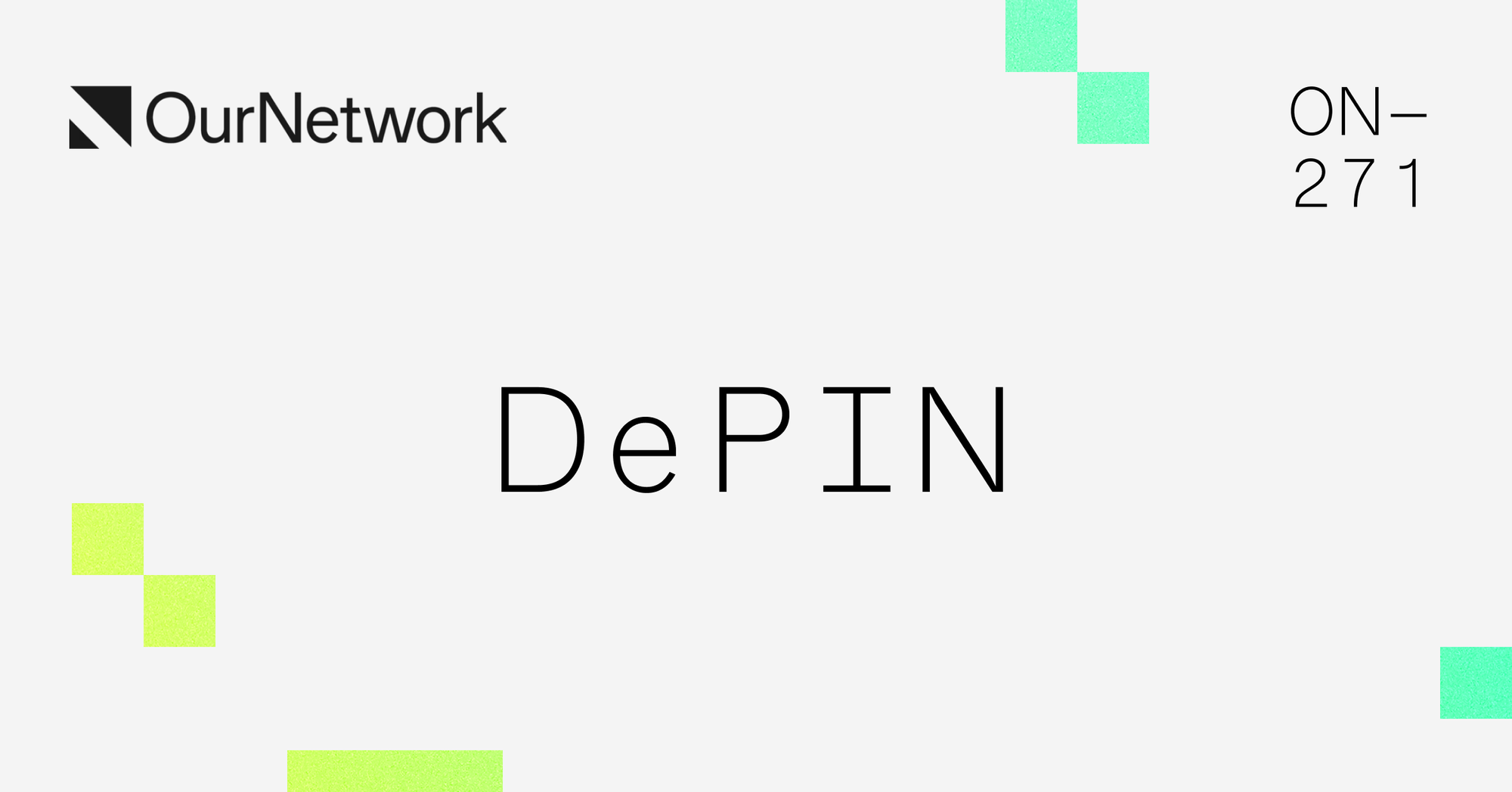
DePIN
Helium | Glow | Livepeer | IoTeX | TADA

DePIN accelerates development, more than 370 tokens are launched
DePIN is a decentralized physical infrastructure network, one of the fastest growing areas in the crypto space, designed to replace capital-intensive industries such as cloud computing, telecommunications, and renewable energy. Of the more than 370 DePIN tokens, 75% focus on virtual services (such as AI and computing), and the remaining 25% provide physical services (such as wireless, energy, and sensors); 75% of DePIN tokens are issued on the EVM chain, and most of the rest are issued on Solana, Cosmos, or its own native L1.
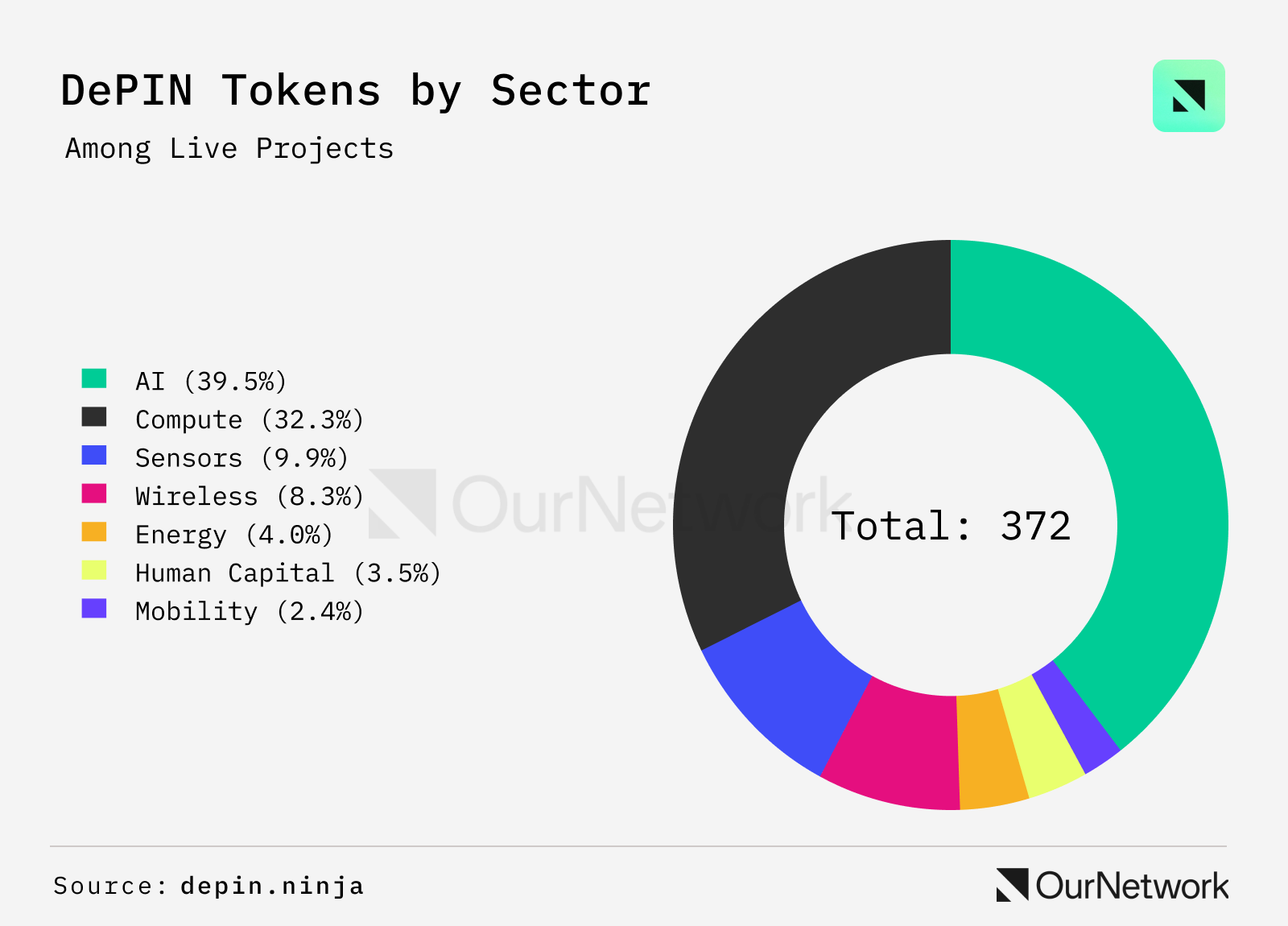
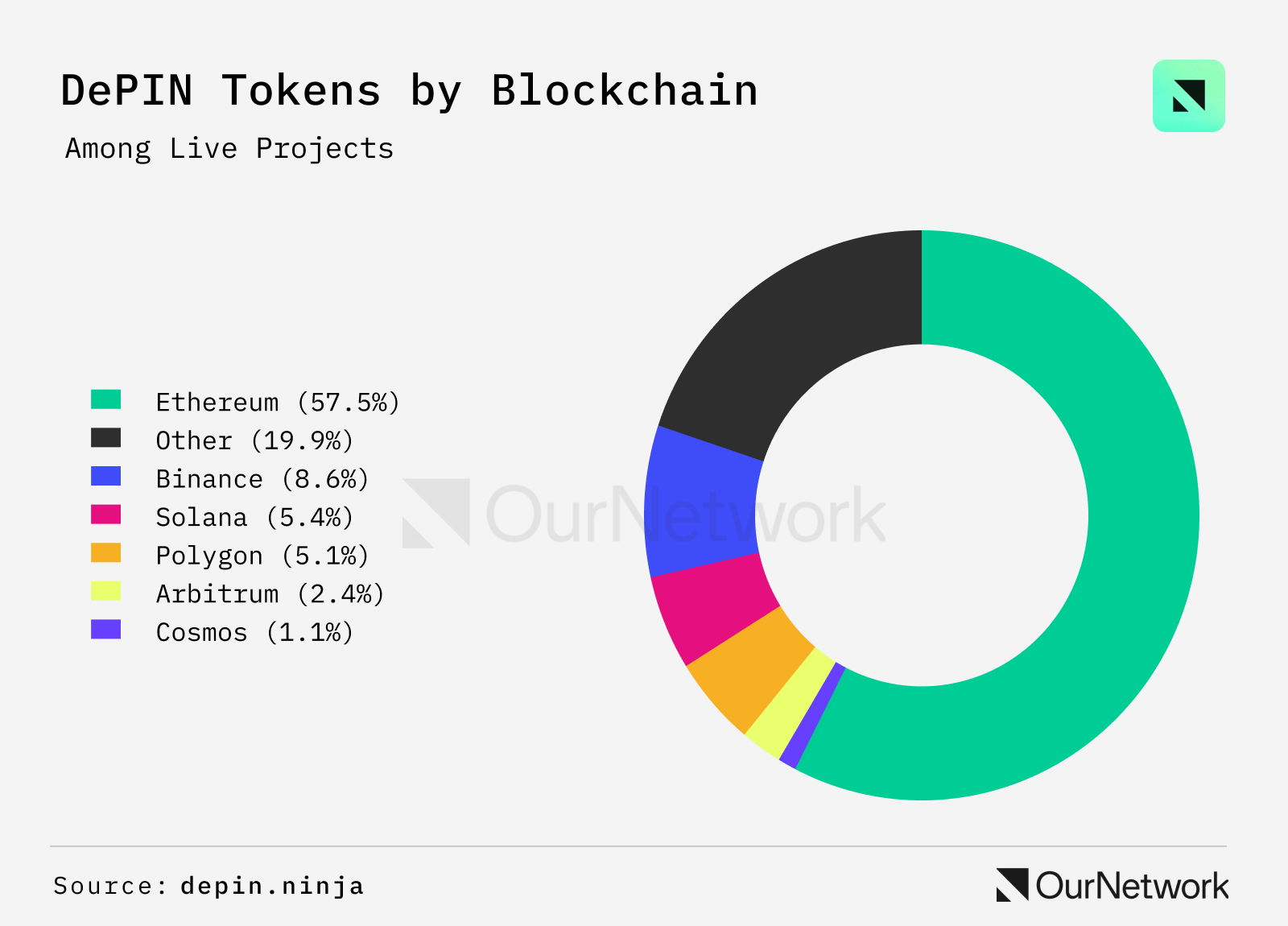
At the annual DePIN Summit held in New York in August, venture capital firm E V3 surveyed 117 DePIN founders and investors about their expectations for the next twelve months - the majority expected the DePIN space to grow from $20 million in on-chain revenue to $50 million to $100 million in annual recurring revenue (ARR) or more, while market capitalization share of all altcoins will increase from 8-10% to 10-15%.
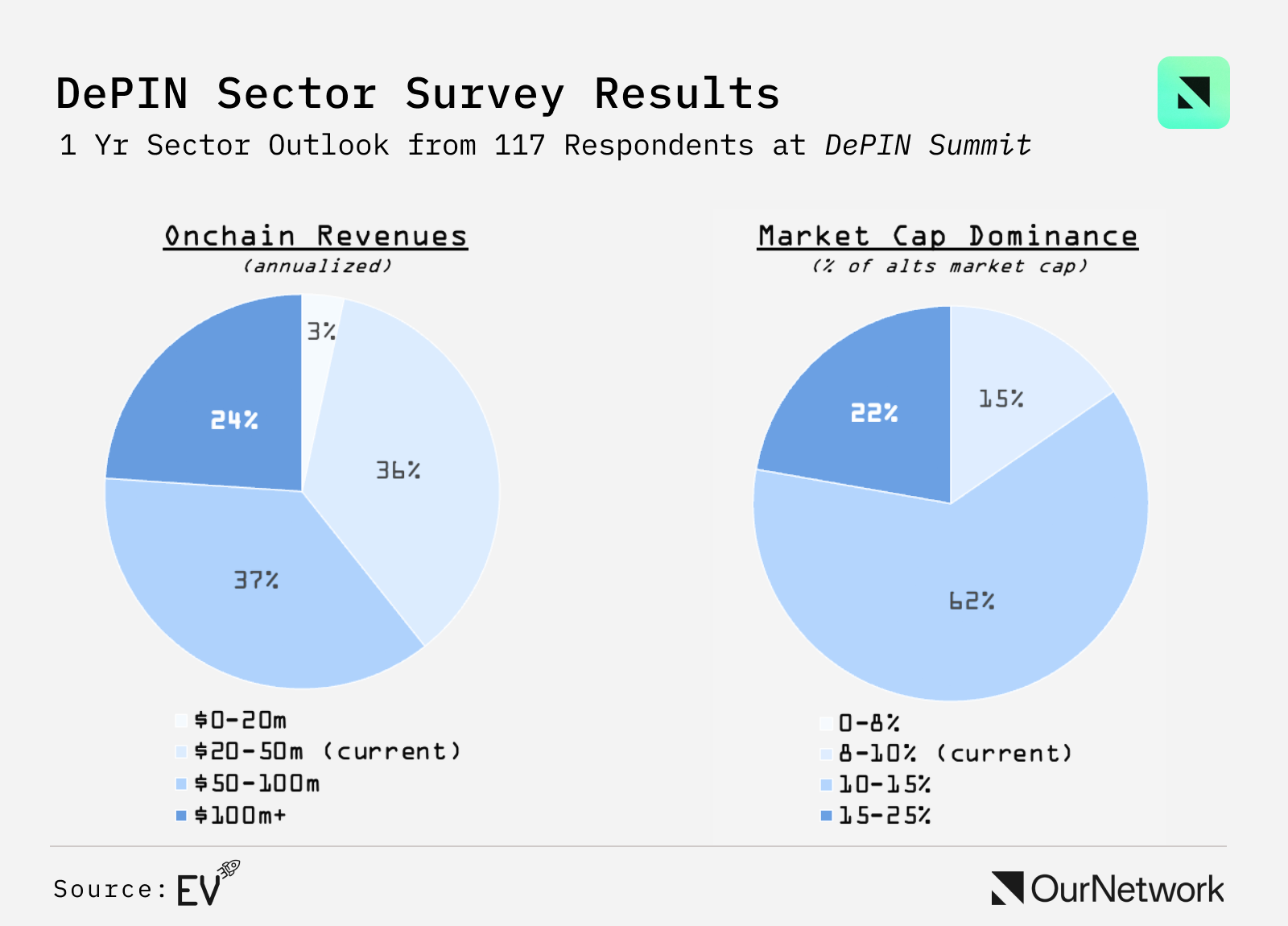
EV3 Ventures
DePINScan tracks over 3 million active DePIN nodes worldwide. Networks with significant scale are moving toward high-throughput blockchains: Of the ten DePINs with over 100,000 active nodes, seven are built in the Solana ecosystem (Helium, Natix, Hivemapper, Grass, Dawn, Uprock, and Roam).
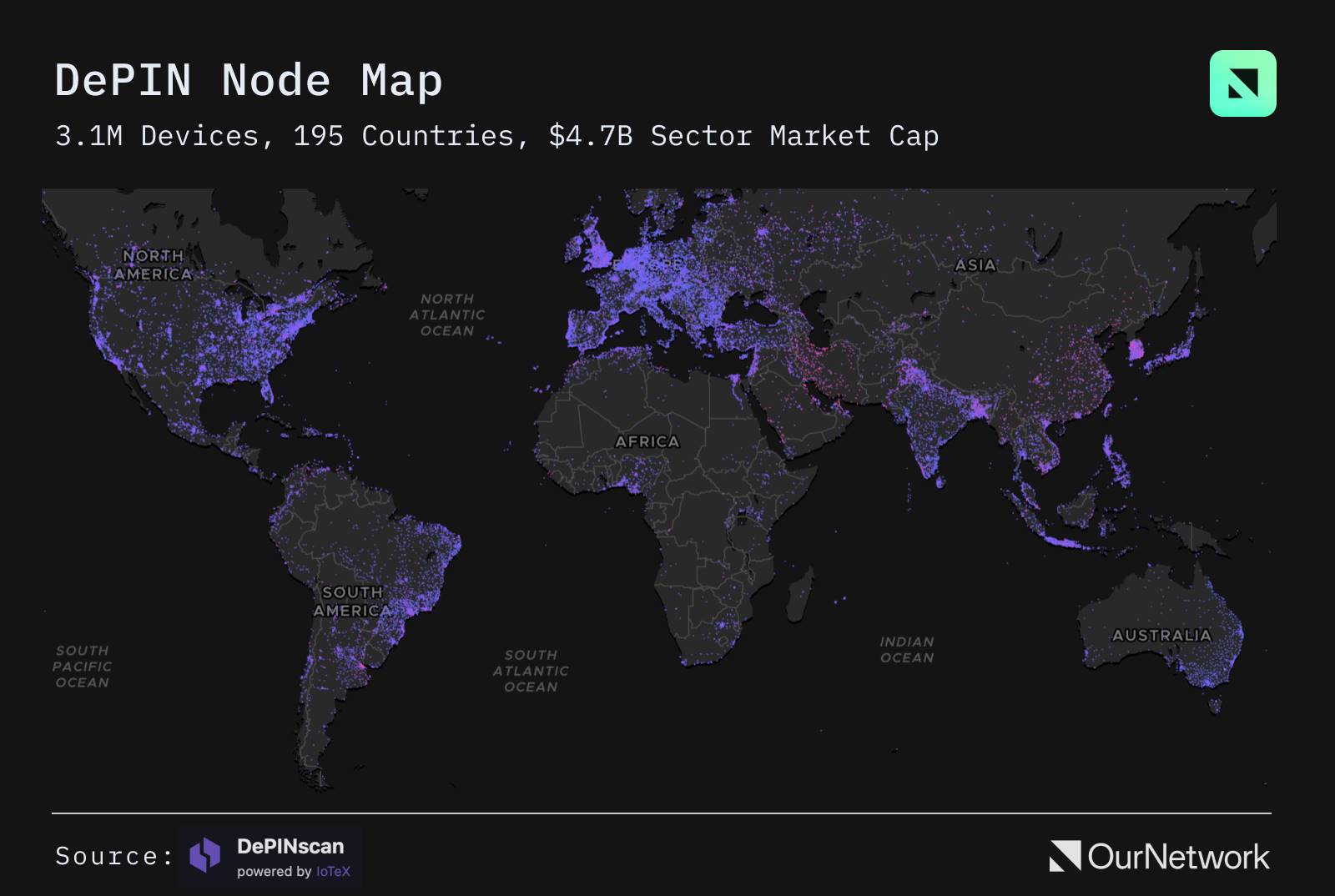
Trading highlights: Users bridged XNET (the token of the eponymous decentralized mobile network) from Polygon to Solana on September 3, the last day for the bridge to be performed at a 1:1 conversion ratio. Starting September 4, the bridge can only be performed at a 1:10 ratio, a 90% reduction from before. XNET correspondingly reduced its maximum supply cap from 24 billion to 2.4 billion, which means the current fully diluted value (FDV) is $450 million, while shifting more than 150 GB of traffic offload from telecom partners every day.

Helium
Helium Mobile gains 114,000 mobile users
Helium Mobile is a blockchain-based wireless service that allows users to create and manage their own mobile networks and earn tokens. The service runs on the Helium network and relies on community-owned hotspots to provide coverage in order to generate tokens, aiming to provide an affordable alternative to traditional mobile service providers. The decentralized mobile service gained 114,000 users in September - the highest number of users since Helium Mobile launched in December 2023.
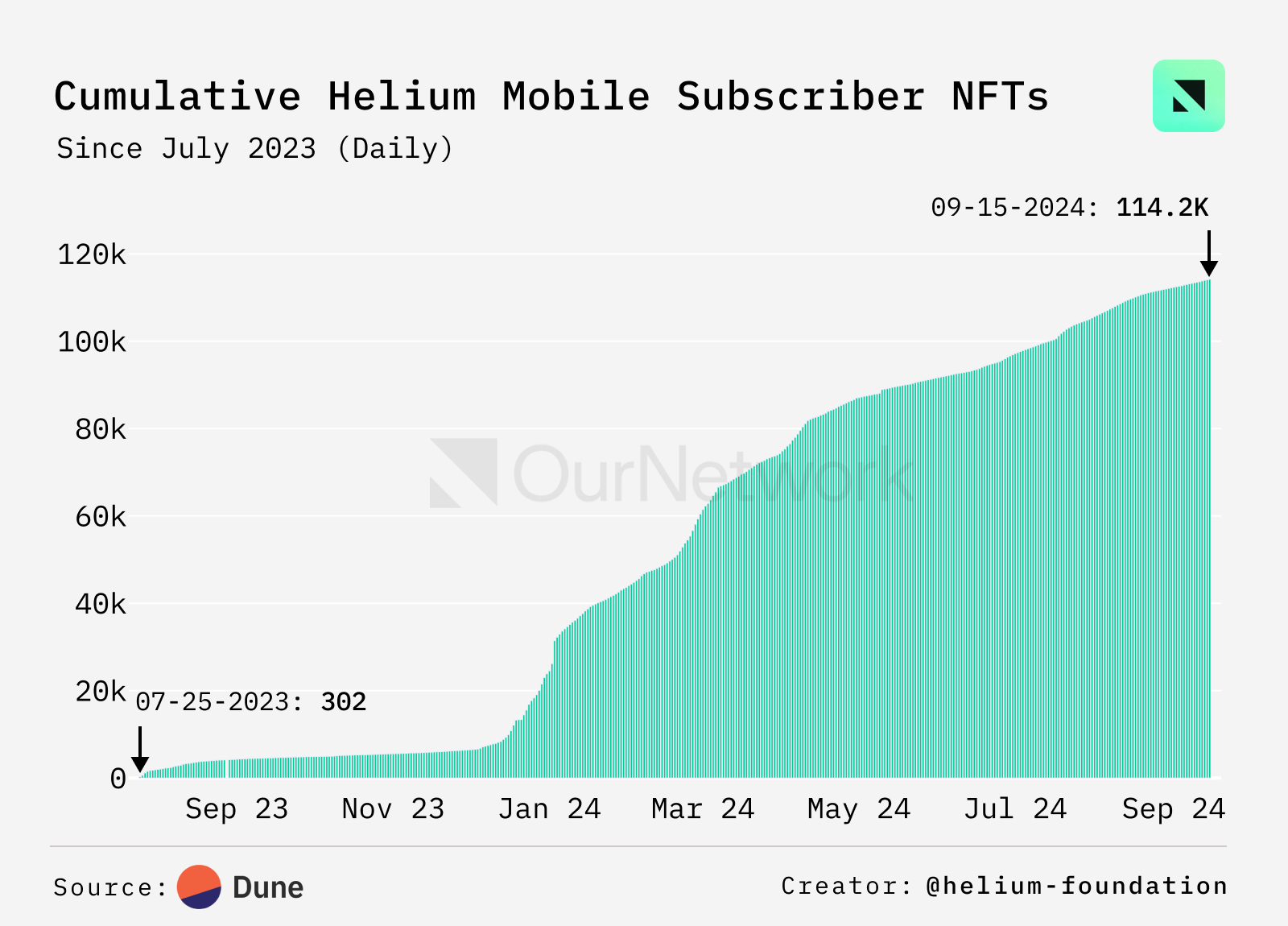
Dune Analytics - @helium-foundation
These charts show the growth of Helium, with daily uninstalls increasing from 1,179 in June to 73,954 in September, an average weekly increase of 18,780. The amount of data uninstalled increased from 0.06 TB to 32.29 TB, showing that users are increasingly relying on Helium for heavy data usage during peak periods.
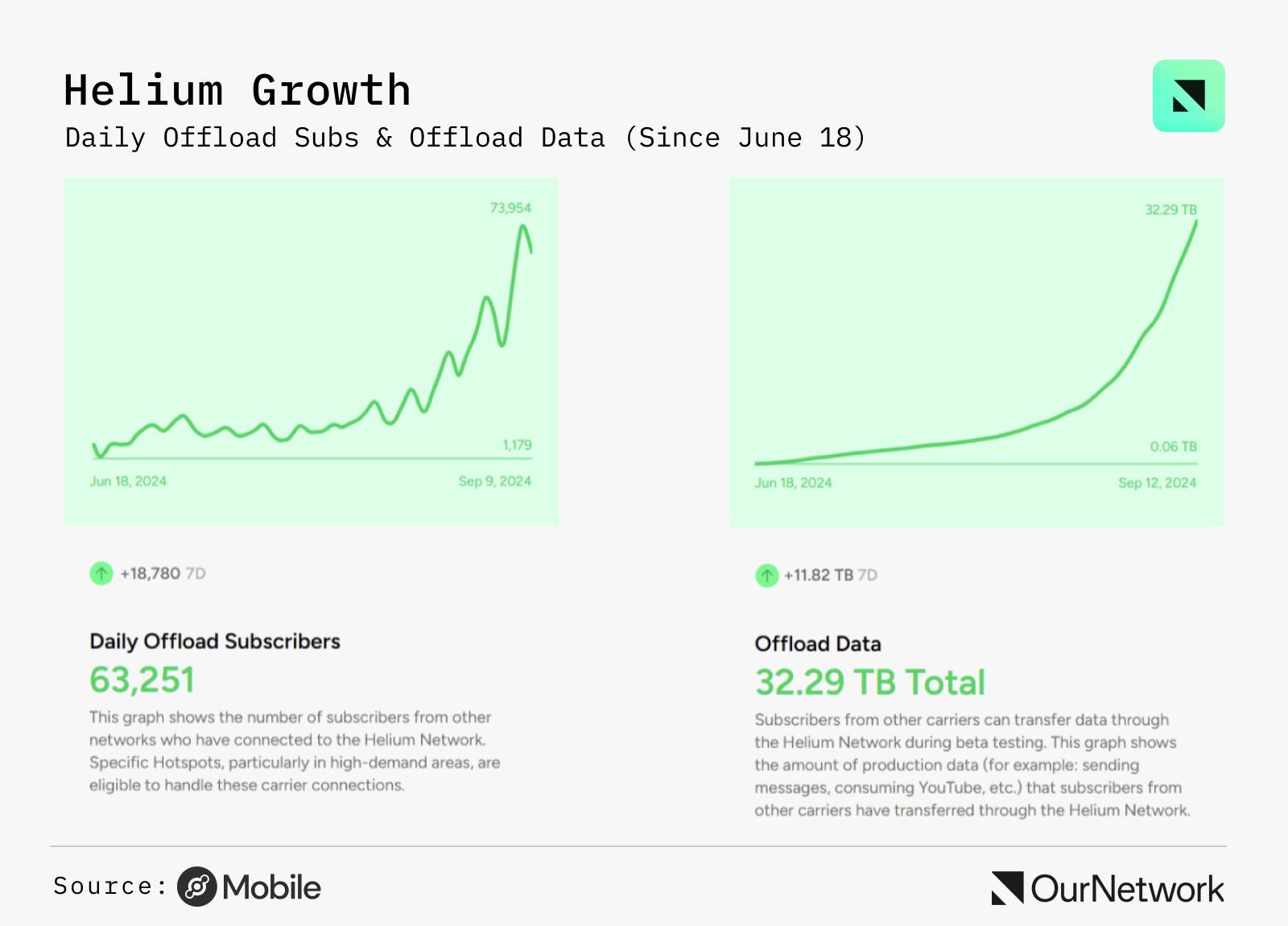
Data Credits (DCs) are required to use network services, such as data transfer. Organizations acquire DCs by burning HNT, the native token of the Helium network, to provide user connectivity. Helium Mobile is the top consumer, having consumed $2,939 in the past 24 hours, with a balance that can support 56.39 days at the current burn rate.
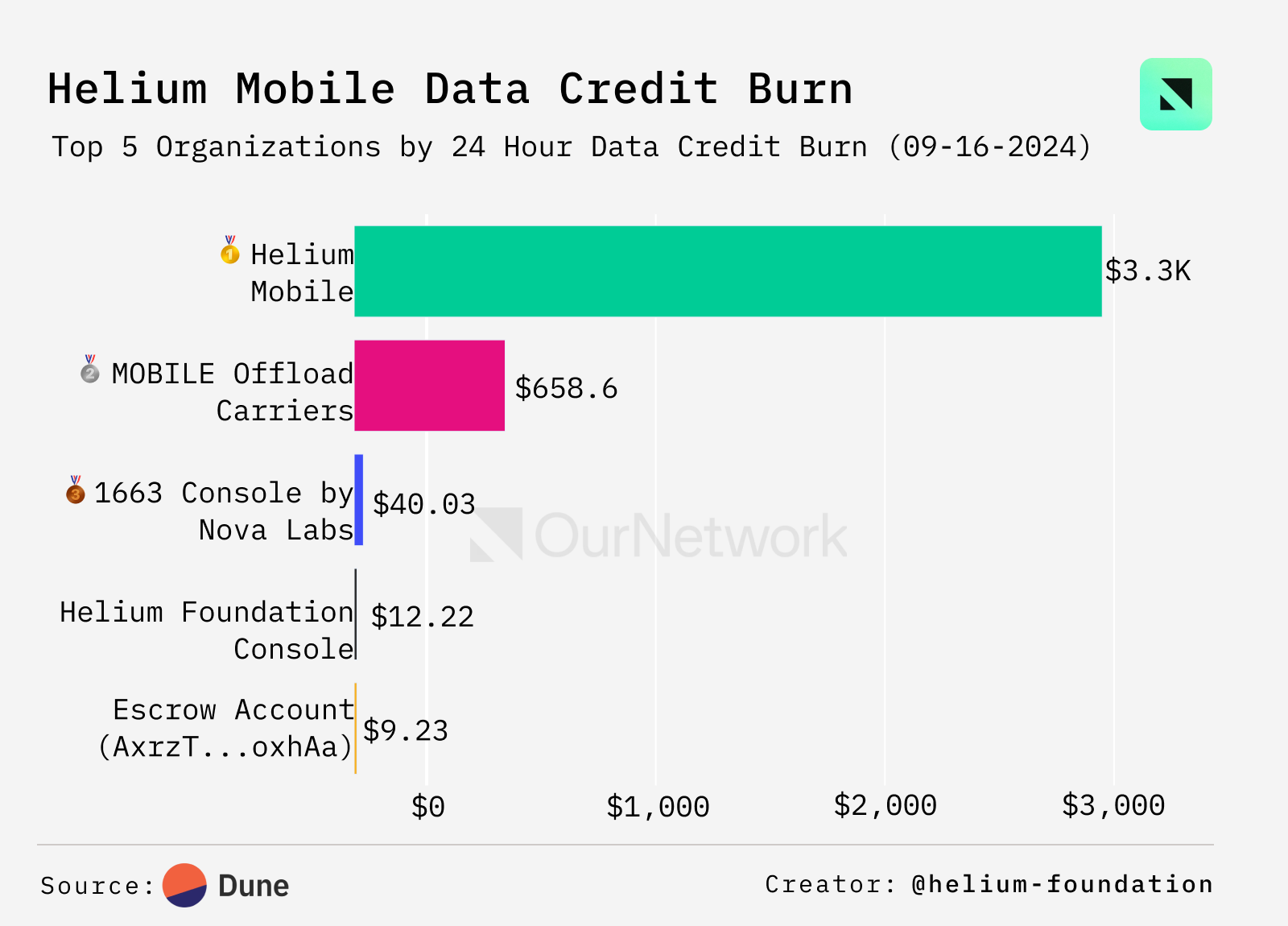
Glow
Glows revenue now exceeds Helium, Akash, and Geodnet
Glow is a decentralized infrastructure network (DePIN) that aims to promote solar energy by incentivizing individuals to participate in solar farms. The project has an annual recurring revenue of $1.6 million, ranking behind the old DePIN pioneer Filecoin.
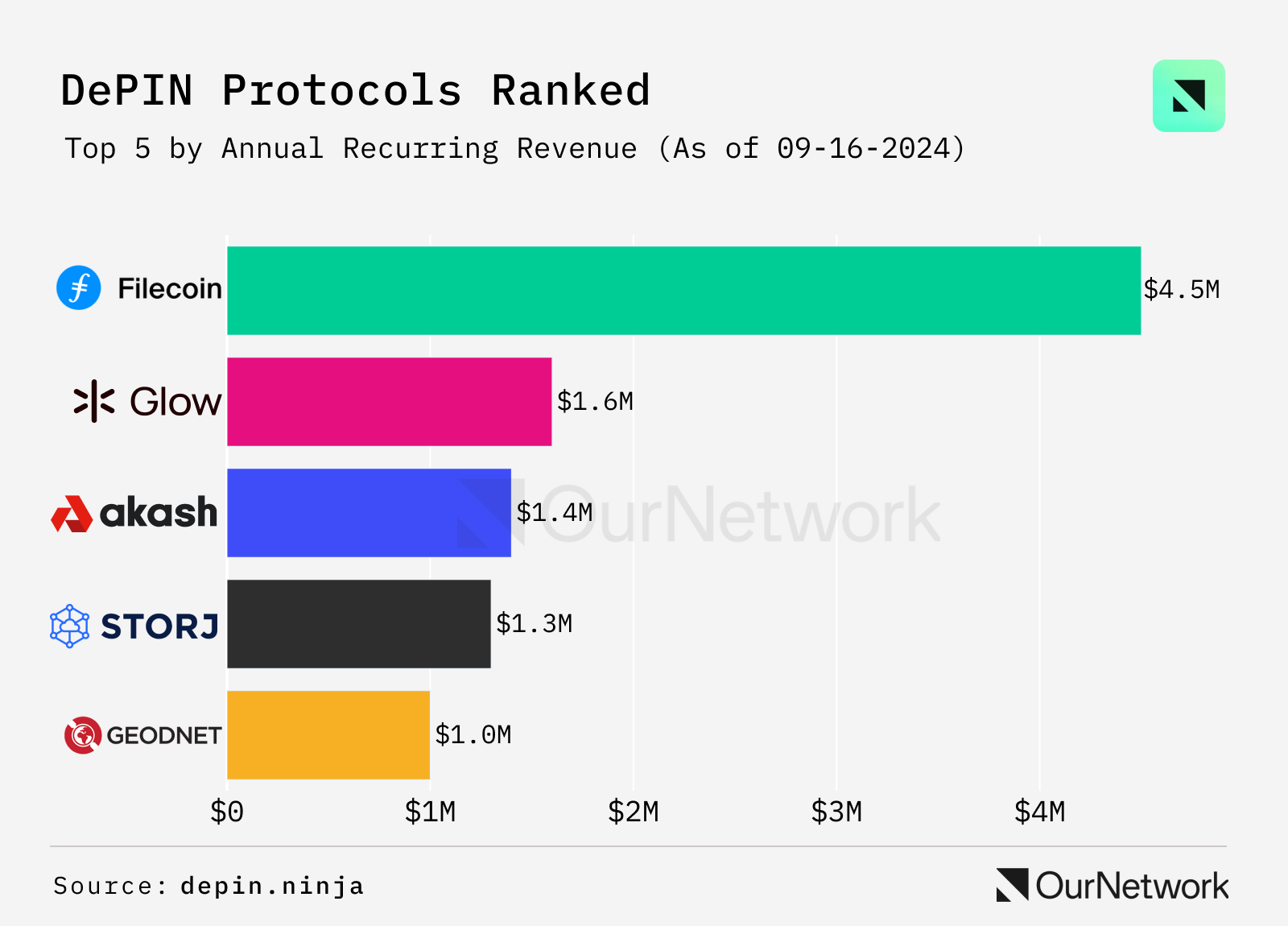
Glow has currently onboarded more than 50 solar farms in a controlled launch phase.
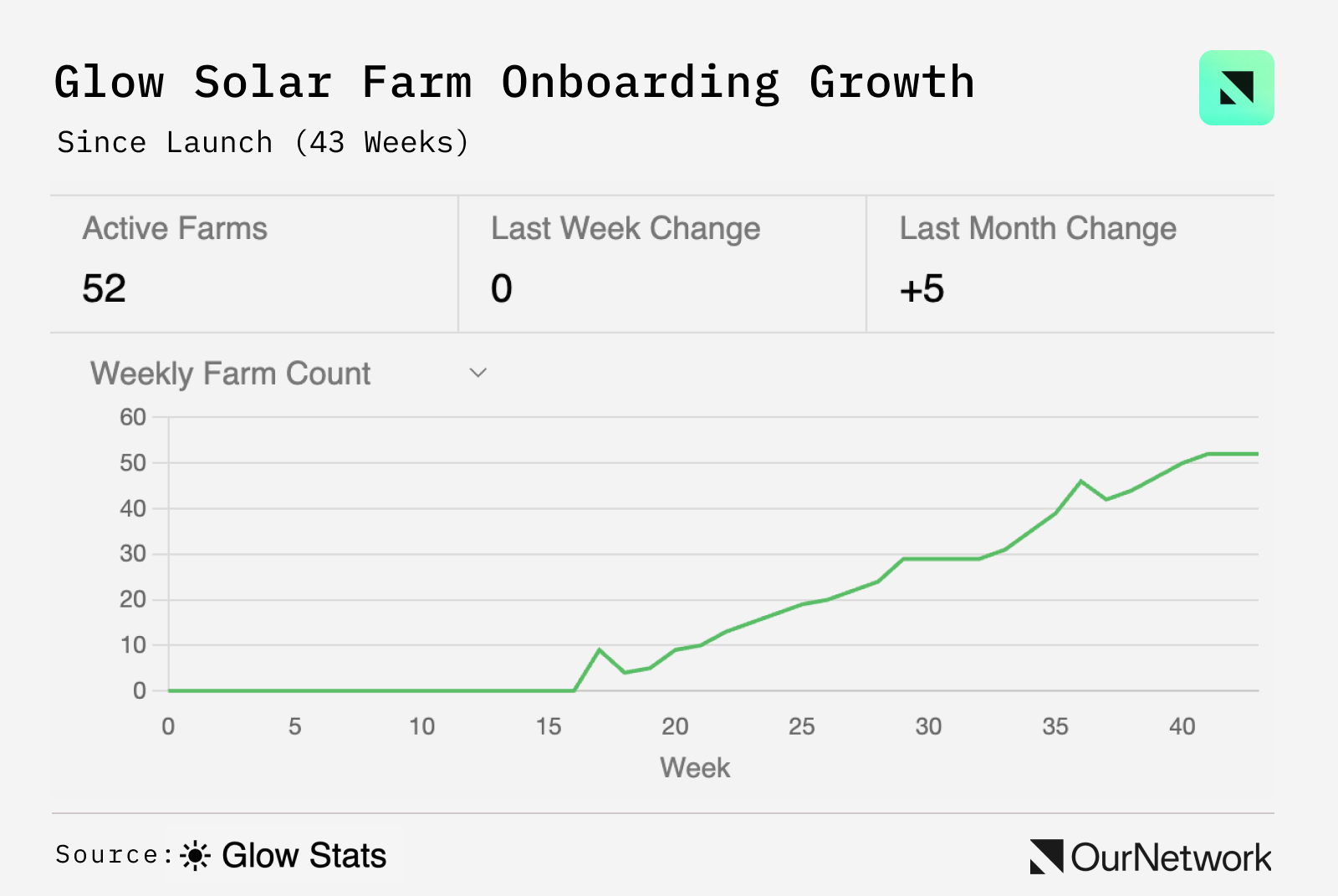
Glow now outputs an average of more than 15,000 kWh of electricity per month.
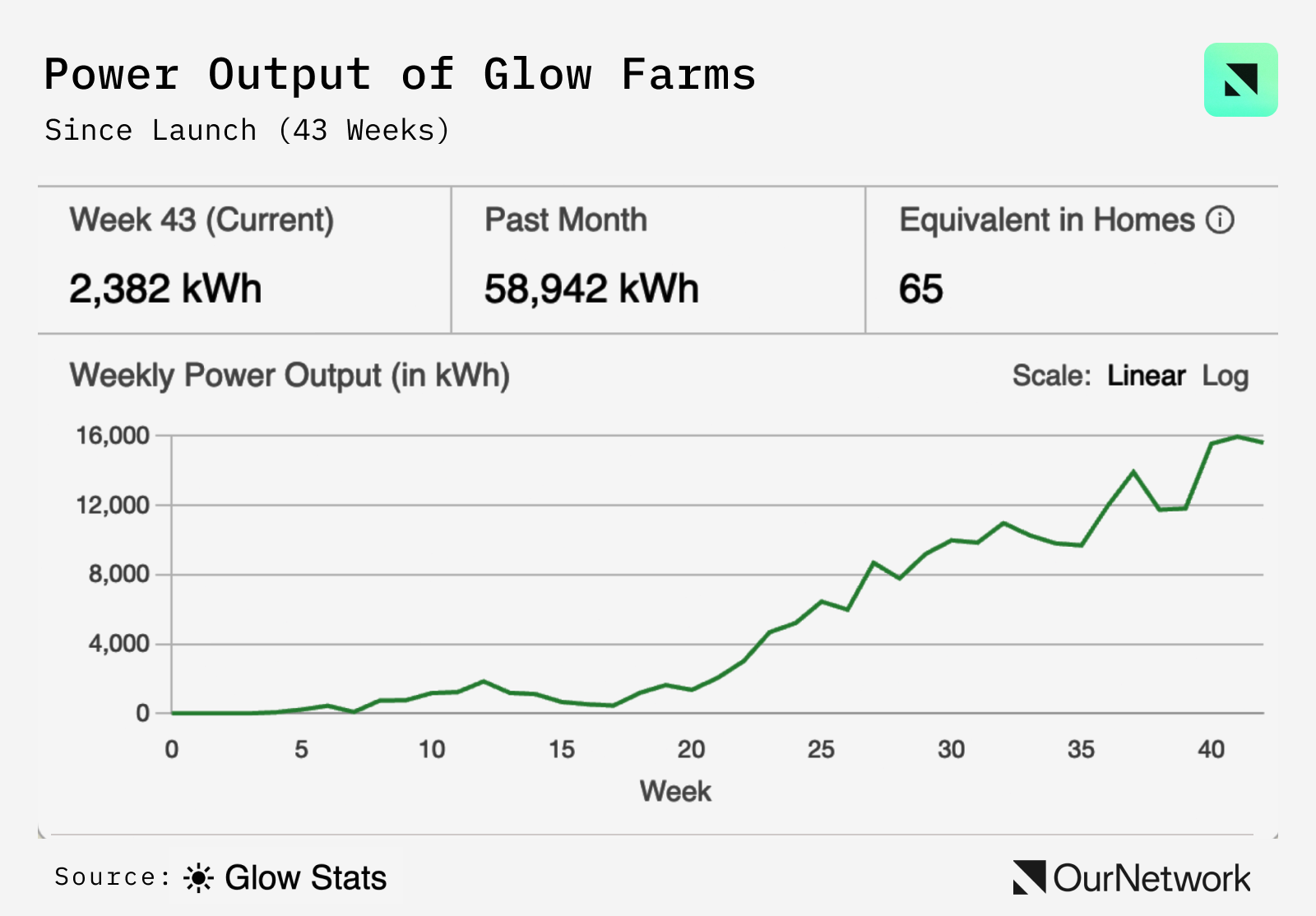
Deal highlights: Glow has been attracting institutional investment, and in August, the first commercial farm was equipped with 200 solar panels and paid $130,000 in agreement fees.
Livepeer
Livepeer | Website | Dashboard
Livepeer AI node operators experienced a 1000%+ increase in network fees due to increased AI computing power
Livepeer is a video infrastructure platform for live and on-demand streaming. It has launched an AI video computing capability, called Livepeer AI, by leveraging its vast network of GPUs, and plans to become a key infrastructure player in the video-related AI computing space. As a result, fees paid to Livepeer AI node operators have increased significantly in the past few months. From July 1 to September 16, Ethereum (ETH) fees increased by 1005% (10 times), reflecting the increased use of the networks AI computing power.
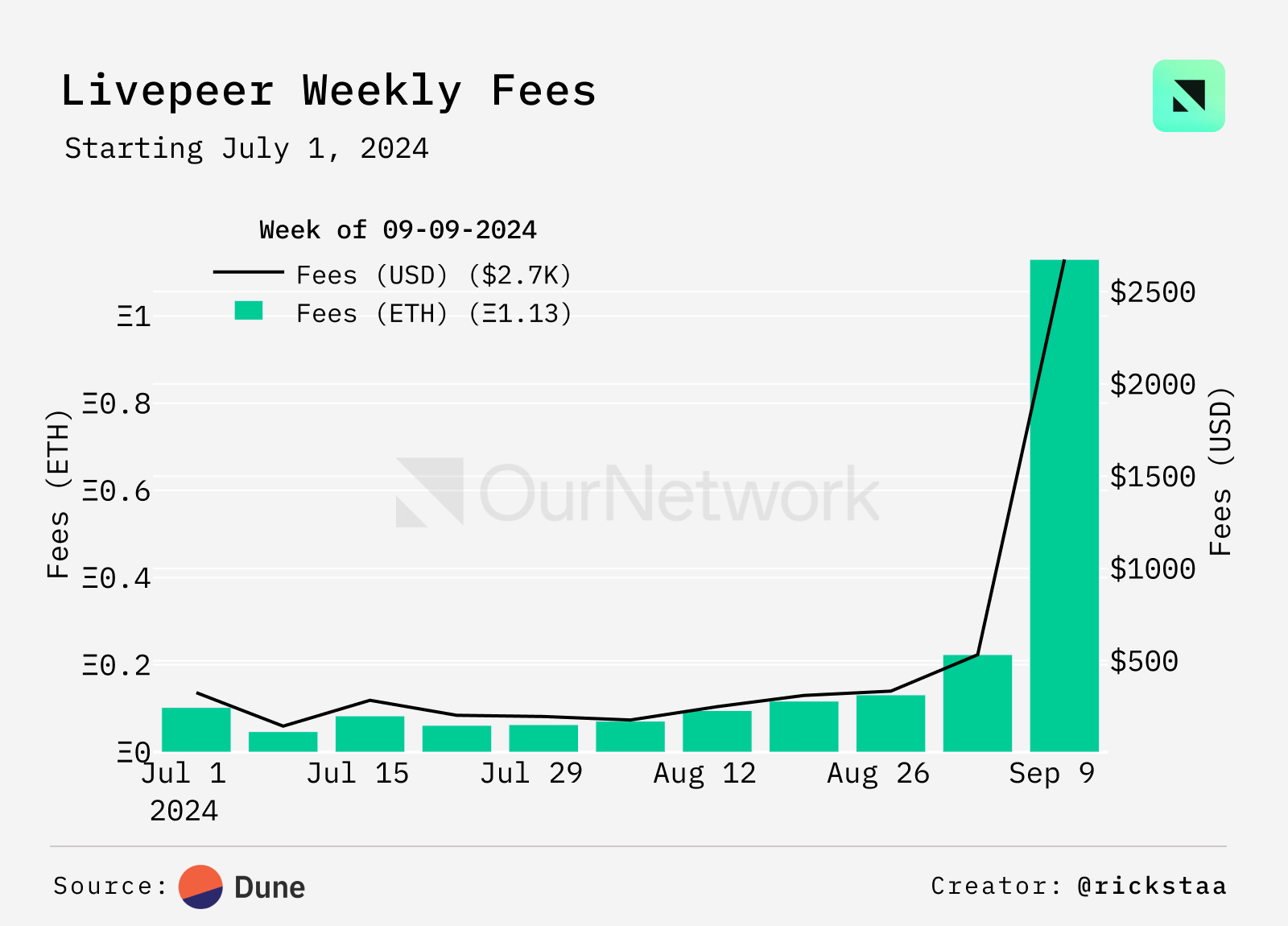
Despite multiple investment activities in growth and infrastructure projects (grants, hackathons, hiring), the treasury LPT balance has steadily increased, reaching an all-time high of 382,232 LPT tokens, allowing the community to use funds for future public goods to expand the Livepeer network.
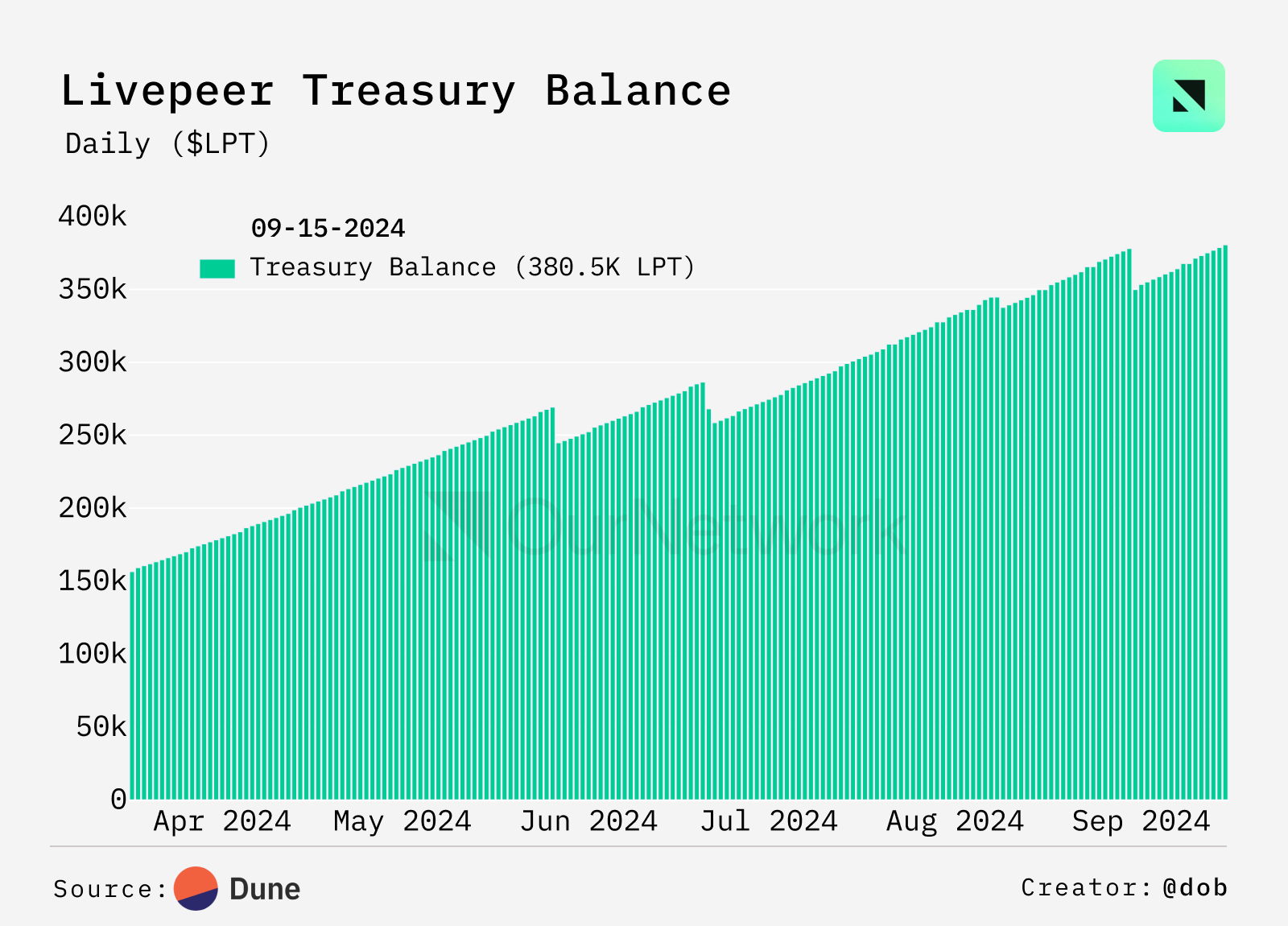
The participation in the network has been steadily increasing (from 41.1% in March to 47.8% in September), which has been helped by the growth of corresponding incentives, such as inflation (incentivizing participation by increasing the token supply), which is designed to encourage more users to participate. Once participation exceeds 50%, the inflation rate will begin to decline.
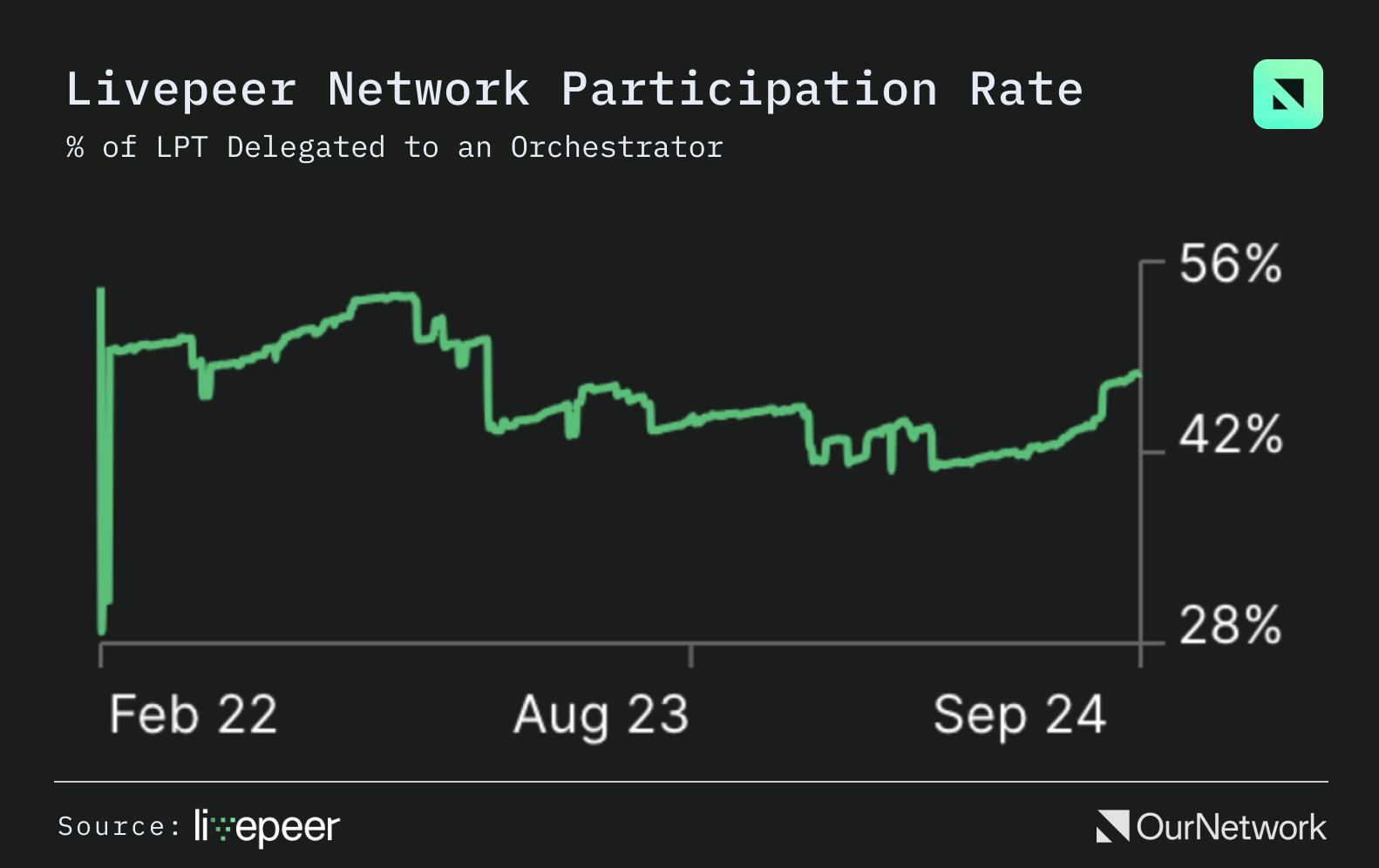
Transaction Highlights: This transaction shows a prize ticket paid by Flipguard Gateway to its AI competition winners. As more gateways like Flipguard leverage Livepeer for AI tasks instead of traditional transcoding, we are witnessing the rise of AI agents seamlessly requesting inference services and paying through efficient micropayments. This is a powerful example of how decentralized infrastructure can drive innovation and unlock new possibilities for AI-driven applications.
IoTeX
Aaron Basi | Website | Dashboard
IoTeX reaches 330,000 global users
IoTeX provides a complete set of tools for creating fully decentralized, composable, and interoperable DePIN projects. The project provides a series of flexible internal DePIN infrastructure modules (DIMs) and public services, as well as modules provided by third-party providers such as Filecoin, Risc 0, NearDA, and Espresso. IoTeX has registered more than 330,000 global users in 120 countries.
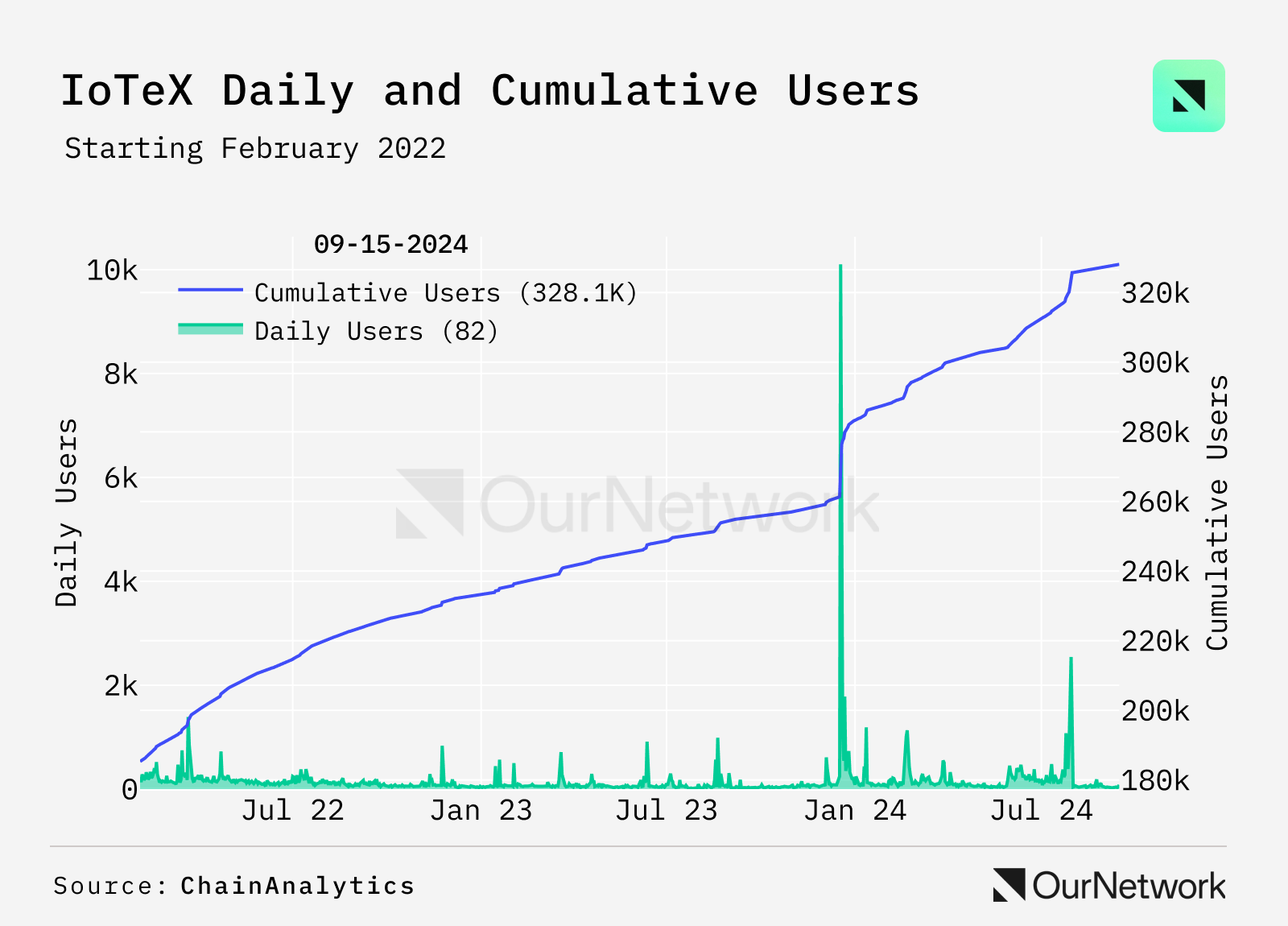
DePINscan is a DePIN community map browser and dashboard built by IoTeX, and all device data is processed by the off-chain computing middleware provided by IoTeX. The number of connected devices has more than doubled from 1,160,495 on June 8 to 3,100,212 today.
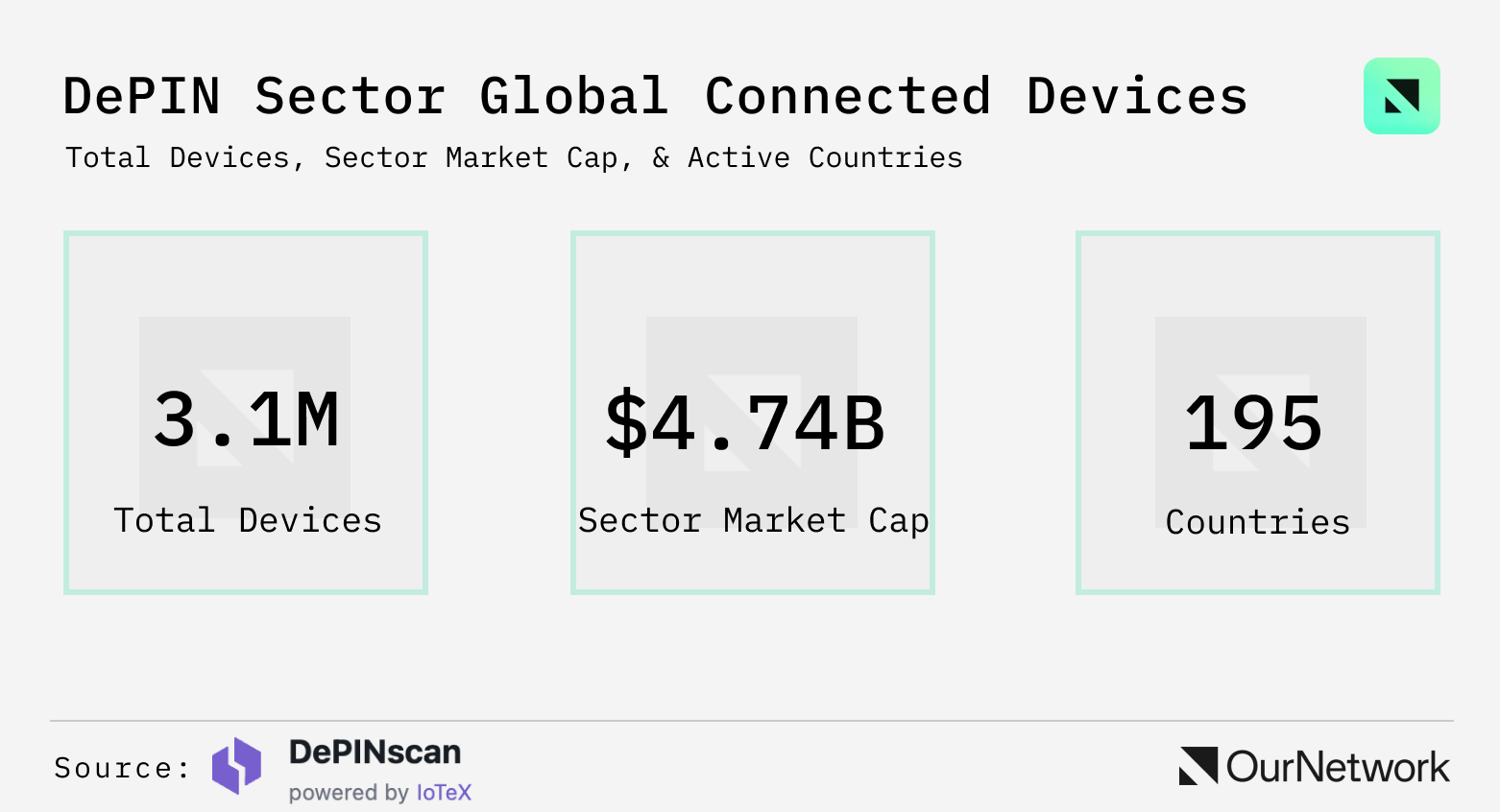
IoTeX now has the eighth fastest blockchain network in the world, with a peak transaction rate of 830 transactions per second (TPS).
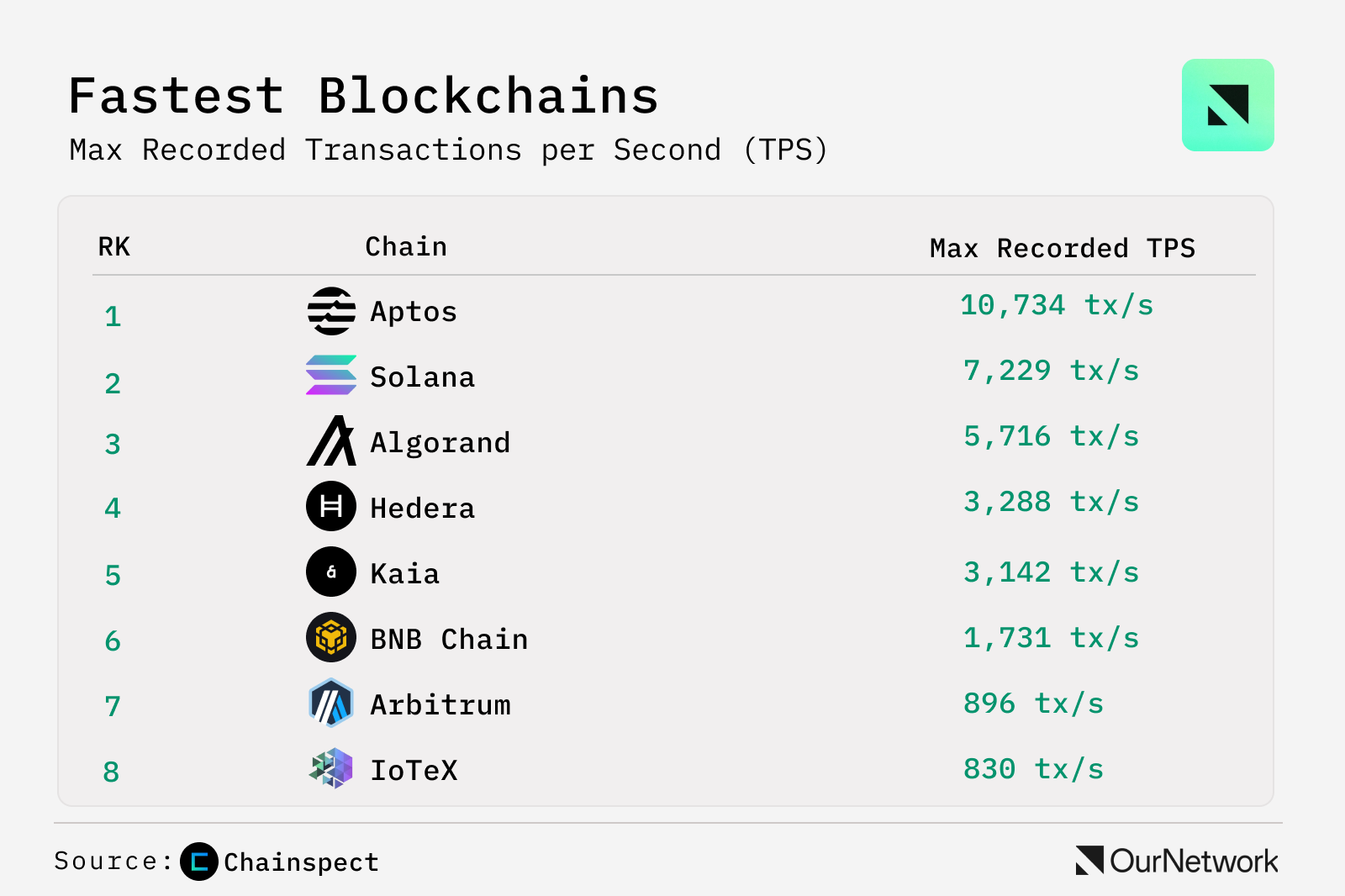
Transaction Highlights: This is a transaction that adds 40,000 $WIFI (worth over $7000) to a liquidity mining contract, which is returned to users who provide liquidity for mimo (IoTeXs DePIN-oriented decentralized exchange). This means an annualized percentage rate (APR) of 163%. Partnering with DePIN projects such as WiFi Map, IoTeX stimulates trading volume for DePIN tokens while also boosting activity on the IoTeX network. Other DePIN projects such as Geodnet, ATOR, and Drop Wireless also offer similar APRs.
TADA
MVLs TADA attracts more than 100,000 drivers
TADA is a taxi-hailing app that operates primarily in Southeast Asia. The following diagram shows how token incentives given by MVL (TADA’s parent company) to early TADA drivers can solve the cold start problem and build network effects. In about 18 months, the project successfully built and maintained a stable driver network despite low passenger trips.
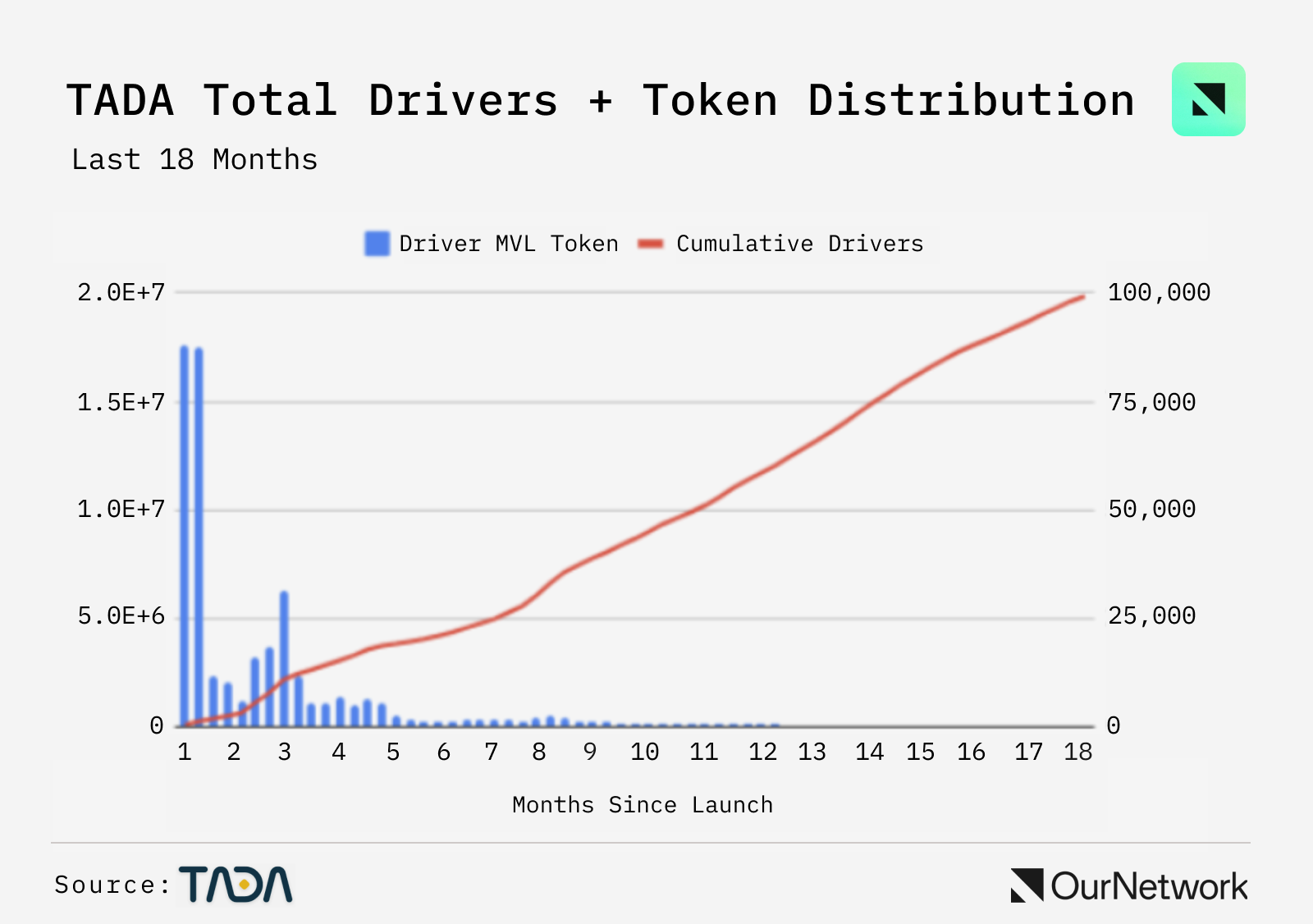
Tada (internal)
TADA mini, connected to the TADA network, is an app that allows users to seamlessly book a ride directly through Telegram, without the need for additional apps or complex identity verification processes. The token referral program applied to TADA Mini once again proves the efficiency of token economics in network launches.
Tada (internal)










